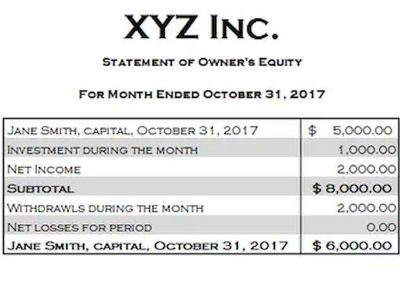Content

Some states may waive interest but not penalties; for example, while other states offer the reverse. The IRS will weigh a host of factors before accepting your offer, including your income, expenses, and asset equity. Despite what you may have heard in radio ads for tax settlement, however, the IRS rarely accepts these offers. Plus, you’ll have to pay a nonrefundable application fee to the IRS and pay 20% of your total offer amount upon application. Debt.org wants to help those in debt understand their finances and equip themselves with the tools to manage debt.
- Understand why the IRS is saying you owe and whether you agree with it.
- Before taking any arrangement provided by the IRS, those with unpaid taxes should consult a tax professional.
- If you can offer reasons why you simply aren’t able pay your tax now, the IRS can put your case on hold, labeling it currently not collectable.
- A tax professional can assist you with establishing whether a first-time penalty abatement could apply to your situation and grant you some relief from penalties.
- You have the right to request a reconsideration of any decision that denies you forgiveness, although it depends on your tax return status.
Our tax pros are aware of the local laws of your state and can provide the best assistance for your refund. The most common repayment period is a payment plan over 72 months, and this option is only available if you need to pay back more than $50,000 in combined debt, interest, and penalties. Moreover, late filings can cause problems with other deductions like itemized deductions. These include the amounts you paid for state income or sales taxes, real estate taxes, and more. You are not only incurring debt, but you’re also missing out on regular deductions from your tax bill. Due to the financial stress back taxes can cause for certain taxpayers, the IRS is often the last place where many people experiencing the impact of tax debt think they’ll get the help they deserve.
What IRS Fines Are Eligible For A First-Time Penalty Abatement?
Even if you do not qualify for total forgiveness, there are other options that will fit your specific financial needs. The short answer is Yes, but it’s best to enlist professional assistance to obtain that forgiveness. Take a look at what every taxpayer needs to know about the IRS debt forgiveness program. In fact, the Fair Trade Commission advises people with tax debt to avoid these companies. Check out our posts on the best and worst tax debt relief firms to get a deeper understanding of this industry. First-time penalty relief falls under this category, but it’s not the only type of administrative waiver.
Keep in mind that if you select this option, the IRS will review your situation every two years. If your finances improve, the agency may require you to pay more money. The offer in compromise (OIC) is a settlement option that qualifies you to pay far less than the amount you owe to the IRS, therefore directly lowering your tax debt. The offer in compromise is a popular solution for individuals who are in debt with the IRS. However, it is also the least common of all programs under the fresh start program that is only approved in severe cases. Your finances are part of their income, and while they might share some tax tips, a tax professional offers a bigger chance of getting deductions and exemptions on your return/filing.
How Do I Apply?
There are times in a person’s life when the amount of tax debt catches up to them and makes repayment seem impossible. To determine whether you qualify for tax relief via an offer in compromise, the IRS considers your ability to pay, your income and expenses, and how much you have in assets. Penalties for failing to file and failing to pay taxes can be substantial.
- While you can navigate this process on your own, it’s best to talk to a tax professional before applying for abatement to increase your chances of success.
- The Fresh Start program is an umbrella term for the many options the IRS offers for tax debt relief.
- They might do so if you really are going through a financially difficult time.
- The IRS failure to pay penalty is 0.5% of your total unpaid taxes for every month that the payment isn’t made, up to a total of 25% of your taxes owed.
- To get help with IRS tax penalties, find a local tax professional to help you.
To qualify, you must show that you can’t pay your taxes and your living expenses. You’ll have to document your income and prove the claim, but doing so can stop the IRS from trying to collect from you right now. Some of these outfits are legitimate, but others are pretty shady and best avoided. At the end of the day, they don’t know any secret tricks or have any special clout with the IRS. The truth is, you’ll save money by knowing how to settle with the IRS by yourself. Businesses may also request tax penalty abatement if faced with penalties for failure to file, failure to deposit, and failure to pay.
How to Apply for Tax Debt Relief or Forgiveness from the IRS
But the IRS offers some relief for married or separated couples if a spouse, or former spouse, hides a tax liability from the other. The IRS, as a tax collection agency, always prefers receiving tax payments to not receiving them. But it also isn’t interested in entering a payment agreement with a truant taxpayer who is unable to make the monthly installments.

If they do decide to cancel your debt, they will write you a letter explaining their decision and the amount you’ve been forgiven. No, those people should be researching options on how to avoid going to jail for tax debt. For those who want to settle their tax debt but are so strapped that they can’t immediately pay what they owe, the IRS offers options. You need to understand the options and choose a strategy that works for you.
Currently Not Collectible (CNC)
If you’re unable to pay your tax debt, then you know just how quickly those penalties and interest charges can add up. It can lead you straight into a debt cycle that feels impossible to get out of. It doesn’t happen often, but if you can demonstrate a special hardship https://adprun.net/what-to-expect-from-accounting-or-bookkeeping/ the IRS may offer penalty abatement for your delinquent bill. In other words, the agency may remove certain penalties and stop adding new charges. With Fresh Start, it’s easier than ever to qualify for installment programs or offer-in-compromise settlements.
- Not only will you owe the government money, the government eventually will catch on and hit you with a bill for what you didn’t pay with interest.
- You can file for an OIC on the IRS website or allow a tax professional to guide you through the process.
- The CSED is typically 10 years after the tax liability was assessed.
- If they fail to do so by their regular due date, they will be charged with a failure-to-deposit penalty.
- These costs can quickly mount up and result in a substantial debt owed.
- They have the experience and education to find you the best solution to settle your tax debt and get you back in good standing with the IRS.
- In order to qualify for the new expanded streamlined installment agreement, you must agree to monthly direct debit payments.
Our friendly team will be able to provide you with more information on the IRS debt forgiveness program. We understand that every case is different regarding IRS tax debt forgiveness. If you’d like to see if you’re eligible for IRS debt forgiveness, contact us Certified Bookkeeper Certifications & Licenses CPB and CB today for a free case review. There is no IRS program named “one-time forgiveness,” but tax debt resolution companies sometimes use this phrase as a marketing hook. In most cases, they’re actually referring to the IRS’s first-time penalty abatement program.
